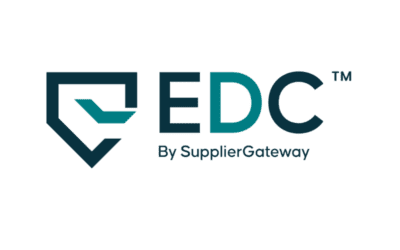Understanding Your SG Score: What It Means and Why It Matters
If you’re a supplier using the SupplierGateway platform, you’ve likely seen your SG Score. But what exactly does it mean? Why is it important to buyers? How can you make sure yours reflects the best version of your business?
Let’s break it down.
What is the SG Score?
The SG Score is a proprietary supplier score within the SG system. It’s a composite score that helps buyers quickly assess your readiness, activity, and compliance as a supplier. It functions as a trust signal, giving potential customers insight into how reliable and up-to-date you are. You can achieve a maximum SG Score of 10.
Think of it like your business’s readiness score— not based on opinions, but real, structured data.
What Factors Influence Your SG Score?
Based on the system configuration, the SG Score is made up of several weighted segments. Each one evaluates a different aspect of your business profile. Here are a few key components:
- Profile Completeness
- Maximum Score: 15
- The more complete and recently updated your profile is, the better your score. You’ll lose points here if your company details haven’t been modified in more than 90 days.
- Compliance & Risk Checks (EPLS/OFAC)
- Maximum Score: 100
- This segment checks whether your company appears on risk-related government watchlists. If no matches are found, you get the full score. If you do show up, your score here drops to zero, significantly affecting your total.
- Certifications
- Bonus points may be awarded for verified certifications, particularly supplier diversity or industry credentials. These not only boost your supplier score but also enhance your profile’s credibility in the eyes of buyers.
Why Buyers Use the SG Score
Buyers don’t have time to vet every supplier manually. The SG Score offers a fast, reliable way to filter out suppliers that may not be ready, complete, or compliant.
A strong supplier score means:
- Your profile is up-to-date
- You’re not flagged in government risk systems
- You’ve taken the time to verify your credentials
A low score, on the other hand, can be a red flag for buyers and may mean lost opportunities. Seventy percent of buyers in the SupplierGateway system filter out suppliers with an SG Score of less than 7. If you have an SG Score of less than 7, chances are you’re going to show up in the bottom 10% of search results when buyers are looking for new suppliers.
How to Improve Your SG Score
Here’s how you can take control of your SG Score and boost your standing with potential buyers:
- Log In Regularly: Keep your profile active by checking in periodically. Why not log in now?
- Update Your Profile: Make sure all your company info is current and accurate. You should probably update your profile if you haven’t in a while.
- Upload Certifications: Verified certifications add credibility and often boost your score. Have you uploaded your certifications yet?
- Stay Compliant: Regularly check to make sure your company doesn’t appear on any watchlist. Getting EDC automatically runs you through over 30 compliance checks.
- Complete All Segments: An incomplete profile won’t inspire confidence. Fill in all relevant data fields.
Show Buyers You Mean Business
Your SG Score is more than just a number — it’s a reflection of your business readiness and trustworthiness. Buyers rely on it to make fast, confident decisions about who they work with. By staying active, compliant, and complete, you position your business for more visibility and more opportunities on the SupplierGateway platform.
Have questions about your SG Score or what you can do to improve it? Check out SupplierGateway support articles for guidance.












